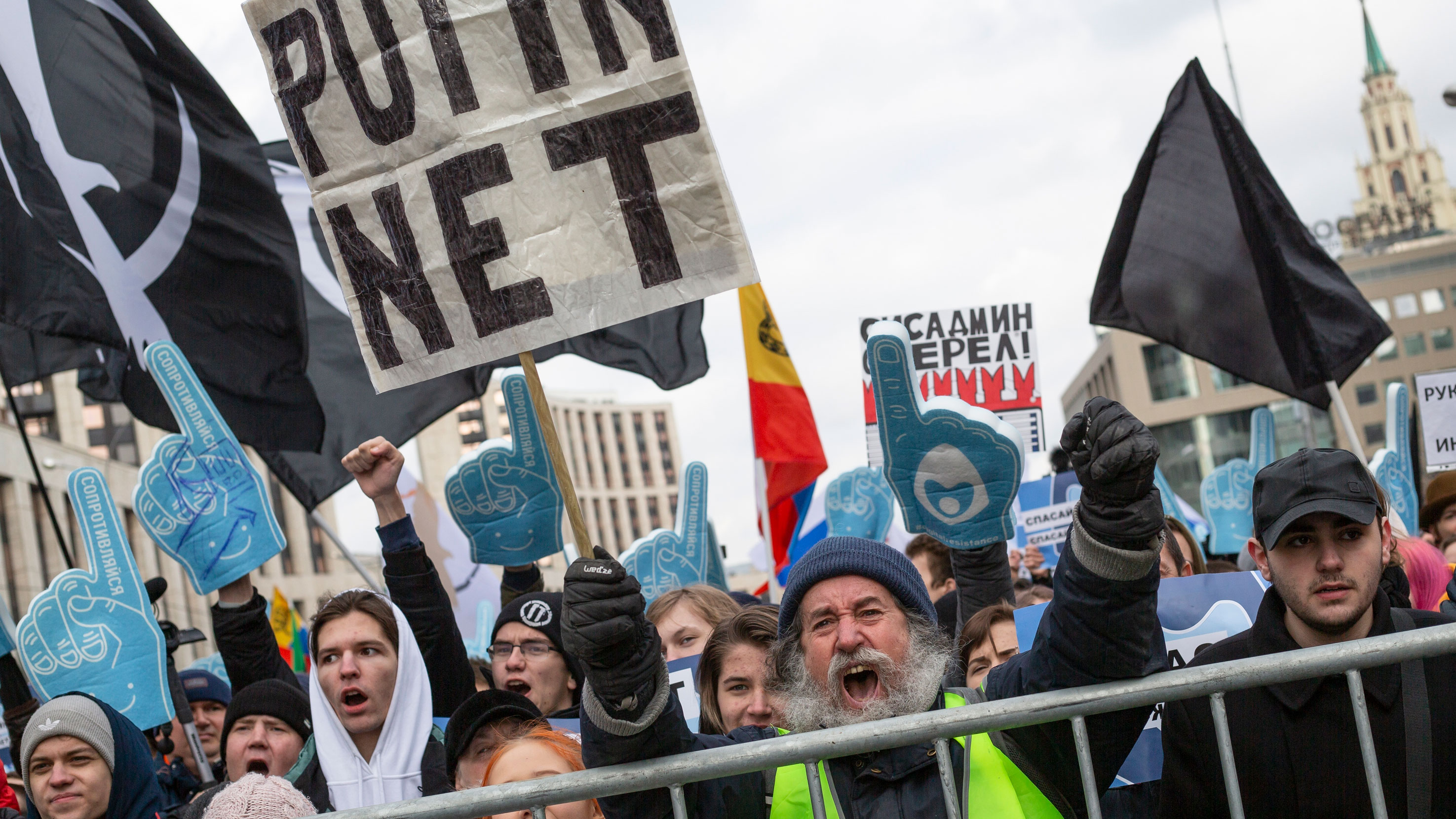Russia’s law that lets it disconnect from the internet comes into force today

Russia’s “sovereign internet” law came into effect today, effectively giving the government far more control over what happens online.
The news: The law, which was signed by President Putin in May, gives Russia’s telecommunications watchdog, Roskomnadzor, the power to block access to content that the government sees as a security threat. (We wrote about what Russia is planning in more detail earlier this year. Read that piece here.) The goal is to make Russia’s internet independent and easier to defend against attacks from abroad.
What it allows: From today, Russia’s internet service providers must have so-called deep packet inspection network equipment installed. This tech can identify the source of traffic and filter content. The law also requires the creation of a homegrown version of the internet’s address book: the domain name system (DNS). This would make it easier for authorities to redirect traffic without Russian users noticing, effectively creating an alternate reality within Russia’s borders. This part is technically complex, however, and won't be ready to launch yet.
Reaction: Thousands of Russians protested against the law earlier this year, to no avail. Civil rights groups have also reacted with concern. Human Rights Watch said the vague definition of “security threats” gives the government too much power over what it reroutes or blocks.
“Now the government can directly censor content or even turn Russia’s internet into a closed system without telling the public what they are doing or why,” Rachel Denber, the group’s deputy Europe and Central Asia director, said in a post on its website. “This jeopardizes the right of people in Russia to free speech and freedom of information online.”
Deep Dive
Policy
Is there anything more fascinating than a hidden world?
Some hidden worlds--whether in space, deep in the ocean, or in the form of waves or microbes--remain stubbornly unseen. Here's how technology is being used to reveal them.
A brief, weird history of brainwashing
L. Ron Hubbard, Operation Midnight Climax, and stochastic terrorism—the race for mind control changed America forever.
What Luddites can teach us about resisting an automated future
Opposing technology isn’t antithetical to progress.
Africa’s push to regulate AI starts now
AI is expanding across the continent and new policies are taking shape. But poor digital infrastructure and regulatory bottlenecks could slow adoption.
Stay connected
Get the latest updates from
MIT Technology Review
Discover special offers, top stories, upcoming events, and more.